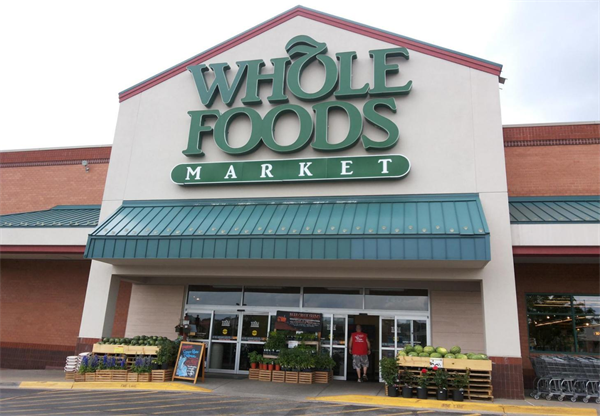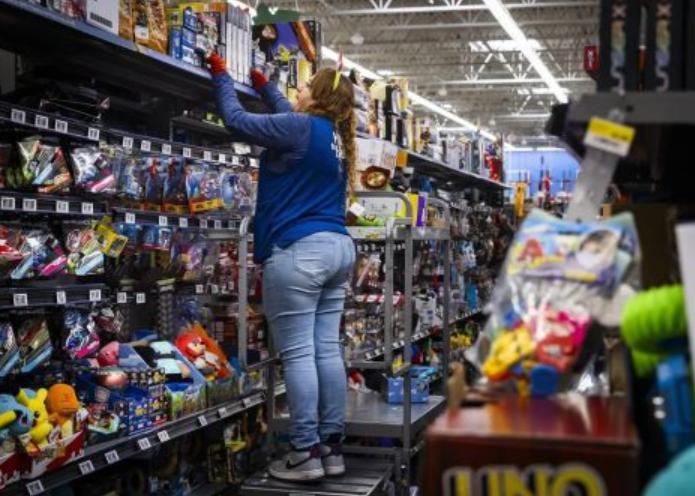
On September 12th, the website of Business Insider stated that due to experiencing the highest borrowing costs in 22 years, household savings in the United States are gradually running out. Affected by this, survey results show that the main engine of US economic growth is expected to lose momentum in early 2024. Amidst historical inflation and soaring borrowing costs, the US market is experiencing a shortage of funds. A study by the San Francisco Federal Reserve Bank shows that household savings in the United States have been declining every month for the past 23 months and may dry up in the third quarter of this year.
The Federal Reserve's aggressive interest rate hike policy has raised borrowing costs. According to foreign media analysis, as the excess savings accumulated during the pandemic that American households have been consuming gradually decrease, the current growth rate of consumer spending is unlikely to continue. Especially as millions of Americans will resume repaying student loans in October this year, these student loan bills have added pressure to the US economy, and higher borrowing costs may make it harder for consumers to continue using credit cards to pay for purchases.
According to JPMorgan Chase, when savings dried up rapidly, the "excess savings" of 2.1 trillion US dollars brought by the stimulus after the COVID-19 epidemic finally ran out. The excess savings accumulated during the epidemic were the root cause of the spending boom in July. Former White House Chief Economist Jason Freeman has warned that not only is the savings rate too low, but other indicators reflecting consumer pressure are also deteriorating, with higher borrowing rates and more people defaulting on loans.
The continuous increase in inflation rate has increased the burden of household expenditure. Just as the interest rate meeting is about to be held and the Federal Reserve may be planning to stop raising interest rates, the Bureau of Labor Statistics has released a set of data that shows that the inflation rate in the United States has exploded. Not only has it not been able to come down as expected, but it has also been rising instead of falling. Since mid-2021, inflation in the United States has been at historical highs and consistently high.
CEO of Double Line Capital, Gonrak, stated that American consumers are facing a series of "difficulties", including rising costs of living, rising rents, increased credit card interest rates, recovery of student loan repayments, and taxes due. Gunlak warned that consumer activities will come to a halt due to the need for consumers to pay interest, and the US economy will also face difficulties in the next six to eight months or so.
In June, the CPI of the United States was once as low as 3.0%, and although it slightly increased in July, it was only around 3.2%. But surprisingly, the CPI in August was as high as 3.7%, far higher than last month's data and far higher than market expectations. This unexpected rebound has caused the Federal Reserve to panic, as consecutive months of CPI rebound have fully demonstrated that inflation in the United States was only a short-term decline in the past period and not truly under control.
The rise in unemployment rate exacerbates the risk of economic recession. Previously, the generally expected unemployment rate in the US market was around 3.5%, but according to the latest statistics, the unemployment rate in the US has risen to 3.8%. The increase in unemployment rate precisely indicates that the risk of economic recession is increasing. Meanwhile, factory orders in the United States continue to experience a month on month decline, with a month on month decline of 2.1% in July. The decline in orders will also lead to an increase in unemployment. These vicious cycle data are important external manifestations of economic recession.
Previously, industry insiders' claims that the US economy would not decline and would have a high probability of achieving a soft landing were based on economic data that had been performing well in the first half of the year. However, currently, inflation, unemployment, interest rates, and other data are far from sufficient to support the expectation of a soft landing for the US economy, and instead, they are giving a green light to the economic recession.

A new survey released in the United States shows that in the context of rising prices and growing concerns among the public about the economic outlook of the country, there is a coexistence of frugality and differentiation.
A new survey released in the United States shows that in th…
By the end of 2025, the situation in the Middle East resemb…
According to Channel NewsAsia, international oil prices hav…
On Sunday, US President Donald Trump Trump met with Ukraini…
Officials in the Trump administration, speaking on Fox News…
In 2025, the Trump administration reshaped the global trade…